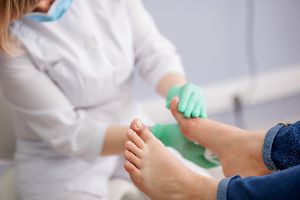
A heel spur is an often painful condition that occurs when a small calcium deposit leads to a protrusion on the underside of the heel bone. Most often, it's associated with plantar fasciitis, a condition that causes pain and inflammation in the connective tissue that runs from the top of the foot to the heel. Luckily, treatment is available for these unfortunate occurrences, but it can be helpful to know what causes a spur in order to prevent the problem. Here's a closer look at the most common culprits.
How Do Heel Spurs and Plantar Fasciitis Develop?
1. Running
Avid runners or joggers often get plantar fasciitis or heel spurs since there's constant pressure on the bottom of the feet, which can lead to inflammation as well as a calcium buildup in the heel bone. It's best to run on softer surfaces, if possible, to give your feet a rest. A beach or a track is better than running on asphalt or concrete since these options are less firm and easier on the feet.
2. Improper Footwear

If you're on your feet all day, running, walking, or just going about your daily life while wearing the wrong shoes, you might be setting yourself up for heel spurs and/or plantar fasciitis. Feet require support, but improper or inadequate footwear can put unnecessary pressure on the bones and tissues.
3. Getting Older
As you get older, the supportive tissue and bones in the feet start to deteriorate, which makes you more susceptible to plantar fasciitis and heel spurs. With that in mind, taking it easy while walking or exercising and wearing supportive shoes can help protect your feet from inflammation and pain.
If you're experiencing plantar fasciitis or worry that you've developed a heel spur, visit Choice Podiatry Associates in Cincinnati, OH. As leaders in podiatry, these specialists create customized, comprehensive treatment plans for diabetic foot care, surgery, orthotics, and ankle injuries for patients of all ages. Compassionate care is never far away, with two locations throughout the Metro area. To schedule an appointment with Dr. John M. Rootring at the Kenwood location, call (513) 984-1911. To meet with Dr. Jay T. Feist at the Bridgetown location, call (513) 574-2424. For more information on these specialists, visit them online.
About the Business
Have a question? Ask the experts!
Send your question

